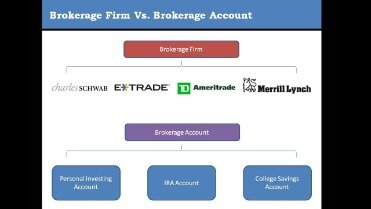The 6 Different Types of Stocks You Need to Know
Contents:


Defensive stocks typically hold up in an economic downturn because they are in industries with continued demand, like health-care and utility services. Cyclical stocks tend to fluctuate with the economy because of changes in consumer spending. Stocks are also further classified by characteristics like industry, market value, growth potential, and volatility. The main stock types are common and preferred, each of which has benefits and drawbacks. After you’ve opened and funded your account, you’ll need to do some research on the companies you’re thinking of investing in.
- Essentially, such an investor bets that the price of the shares will drop so that they can be bought back at the lower price and thus returned to the lender at a profit.
- The underlying security may be a stock index or an individual firm’s stock, e.g. single-stock futures.
- A more diversified investment portfolio would have had a lower return, but reduced volatility.
- This may influence which products we review and write about , but it in no way affects our recommendations or advice, which are grounded in thousands of hours of research.
- They can be particularly susceptible to economic downturns when capital dries up and they may not be able to fund their businesses.
- So, while the possibility for attractive returns is greater than with other investments, so is the possibility of losing money.
Although some penny stocks trade on major exchanges, many trade through the OTCQB—a middle-tierover-the-counter market for U.S. stocks operated by OTC Markets Group. On the other hand, non-cyclical stocks operate in “recession-proof” industries that tend to perform reasonably well irrespective of the economy. Non-cyclical stocks usually outperform cyclical stocks in an economic slowdown or downturn as demand for core products and services remains relatively consistent.
What are some different types of stocks?
Thus, with mutual funds, you don’t have to spend much time researching particular stocks to make a safe investment. The shares of ownership of smaller companies with a market capitalization from $300 million to $2 billion are known as small-cap stocks. They have tremendous future growth potential; however, such stocks expose investors to significant risks during economic downturns. Small-cap businesses lack a reliable financial cushion to help them withstand business depression or bad management. On the other hand, preferred stock, or preference shares, entitles the holder to regular dividend payments before dividends are issued to common shareholders.
After losing 0.8% in the past year, Sight Sciences, Inc. (NASDAQ:SGHT) institutional owners must be relieved by the recent gain – Simply Wall St
After losing 0.8% in the past year, Sight Sciences, Inc. (NASDAQ:SGHT) institutional owners must be relieved by the recent gain.
Posted: Sat, 15 Apr 2023 14:40:02 GMT [source]
Even though the preferred stockholders don’t own any shares, they receive fixed dividend income. The rate of dividend yield on such stocks is either a percentage of the nominal value of shares or an absolute number; it never depends on the company’s revenue. To some extent, preferred stock is similar to the fixed-income securities markets, and this fact also makes them sensitive to changes in interest rates. That’s why this type of stock is attractive to investment professionals only when the interest rates are stable or about to decrease. Another theory of share price determination comes from the field of Behavioral Finance. According to Behavioral Finance, humans often make irrational decisions—particularly, related to the buying and selling of securities—based upon fears and misperceptions of outcomes.
Understanding how stocks work
Defensive stocks, meanwhile, are shares of companies whose businesses are less impacted by the ups and downs of the business cycle. Utilities stocks, healthcare stocks and consumer staples stocks are all considered defensive investments. That’s because their revenue—and potentially their stock prices—remain steady in boom and bust economies.
- Companies set the redemption price, or call price, in the prospectus, and shareholders must sell for that amount.
- Eventually you must purchase the same number of shares borrowed and return them to the lender – this is referred to as closing out or covering the short-sale position.
- Because preferred stock rarely appreciates in value even as the company expands and grows, those who invest in preferred stock run a lesser risk of losing their entire investment.
- By law, they can invest only in certain high-quality, short-term investments issued by U.S. corporations, and federal, state and local governments.
Companies generally offer IPO stock at a discounted price before their stock is listed on the stock exchange. IPO stocks often have a vesting schedule that prevents stockholders from selling as soon as the stock as listed on the market. Classes of stock may also offer different dividend policies, which means dividend payments can vary based on the type of stock you own. Different classes of stock may be reserved for certain groups of investors, and they may be sold at different prices.
IPO stocks
Typically, small-caps are generally considered those with shares worth less than $2 billion and large-caps are those worth more than $10 billion. Other companies designate certain votes for Class A only, like filling the board of directors or changing the strategic direction of the company. All classes might vote on other major decisions, such as dissolving the company or considering a merger. The non-voting class shareholders “are there to go along for the ride and whatever the Class A shares decide,” says Sam Brownell, managing director of Stratus Wealth Advisors in Kensington, Maryland. “They have to be OK with taking the risk that they don’t have any control over the direction.” Many or all of the offers on this site are from companies from which Insider receives compensation .
A very conservative investor will be drawn to the seniority of preferred stock over common stock, while recognizing that this safety comes with much lower profit potential. Essentially, preferred stockholders accept the guaranteed but relatively low-yield dividend. One of the benefits of convertible preferred stock is the investor benefits if the corporation has a sudden increase in its value. Another benefit of convertible stock is the holder may trade their shares for common stock by a specified date. Additionally, by holding convertible preferred stock, an investor can balance both the growth and the income to their advantage. Because preferred stock rarely appreciates in value even as the company expands and grows, those who invest in preferred stock run a lesser risk of losing their entire investment.
These stocks generally perform better when the economy is expanding and interest rates are low. For example, technology stocks have significantly outperformed projections in recent years. It’s a matter of how much risk you can afford to take, versus how much profit potential you seek.
We are not a law firm, do not provide any legal services, legal advice or “lawyer referral services” and do not provide or participate in any legal representation. A value stock is one perceived to be available at a lower price than what it is worth. Fortunately, when it comes to long-term gains, the answer is not timing but time. Historically, the longer you are in the market, the more likely you are to capitalize on gains. Banking services and bank accounts are offered by Jiko Bank, a division of Mid-Central National Bank.
With 61% ownership of the shares, Texas Pacific Land Corporation (NYSE:TPL) is heavily dominated by institutional owners – Simply Wall St
With 61% ownership of the shares, Texas Pacific Land Corporation (NYSE:TPL) is heavily dominated by institutional owners.
Posted: Sat, 15 Apr 2023 13:54:58 GMT [source]
This type of stock also may allow shareholders to vote on things such as a company’s board of directors. It is a share of ownership in a company, which entitles the owner, also known as a shareholder, to own part of a company’s assets and a percentage of its profits if the stock pays a dividend. They can be considered a relatively risky investment, because they can potentially lose all of their value. However, they can also potentially increase in value over time.
Their rate of return may be fixed or floating, and take the form of interest or dividends. Holders of this type of stock obtain the pre-emptive right to claim ownership of the asset’s part upon liquidation of the company. These privileges don’t come for free, as preferred shareholders have to sacrifice their voting rights and are not eligible to participate in the company’s management. Achieving financial success today is inconceivable without basic knowledge of fundamental investing principles.
The 11 GICS Stock Market Sectors The larger stock market is made up of multiple sectors you may want to invest in. TIME may receive compensation for some links to products and services on this website. Here is a non-exhaustive list of some of the more common types of stock on the market. Index Funds Learn why index funds can be a low-cost, tax-efficient and diversified way to invest in securities. A buy stop order is entered at a stop price above the current market price. Investors generally use a buy stop order to limit a loss or protect a profit on a stock that they have sold short.
What is this money for?
When investment professionals talk about stock, they almost always mean common stock. Publicly traded companies issue different classes of stock—more on that subject below—but common stock is the most basic type. In fact, the overwhelming majority of stock issued by companies is common stock. Most U.S. investors tend to hold companies that are headquartered in their home country, and for good reason. The U.S. has well established capital markets and is home to some of the most successful companies in the world.
Wells Fargo and Company and its Affiliates do not provide tax or legal advice. This communication cannot be relied upon to avoid tax penalties. Please consult your tax and legal advisors to determine how this information may apply to your own situation.

Foreign stocks can be common and preferred, but they are always issued by international corporations with headquarters located outside the United States. Foreign stocks trade worldwide on different exchanges; in the USA, they are traded in the form of ADRs . Environmental, social and governance is an approach to investing where people only buy the stock of companies that exhibit responsible corporate behavior. Cyclical stocks are companies whose sales—and their share prices—tend to surge when the economy is growing out of an economic slowdown and into a boom.
Which Types of Stocks Should You Invest In?
Dividends provide valuable income for investors, and that makes dividend stocks highly sought after among certain investment circles. Technically, paying even $0.01 per share qualifies a company as a dividend stock. Large-cap stocks are generally considered safer and more conservative as investments, while mid caps and small caps have greater capacity for future growth but are riskier. However, just because two companies fall into the same category here doesn’t mean they have anything else in common as investments or that they’ll perform in similar ways in the future. International stocks are shares of companies that are not based in the U.S.

Here’s what you should know about the different types of stocks. He has previous experience as an industry analyst at an investment firm. Baker is passionate about helping people make sense of complicated financial topics so that they can plan for their financial futures. A benchmark is a standard against which the performance of a security, mutual fund or investment manager can be measured. Defensive stocks are less likely to face bankruptcy because of their ability to generate consistent returns during periods of economic weakness. By contrast, non-cyclical stocks, also known as secular or defensive stocks, don’t have those big swings in demand.
Different types of stocks include shares of businesses dependent on economic downturns and expansions. For example, companies that offer travel services or sell luxury items are the most exposed to risks. This is because a period of economic slowdown deprives their prospective customers of the ability to make expensive purchases. It also works the other way – when the economy is strong, a surge in demand can make such companies rebound sharply. Companies behind penny stocks are very often in financial trouble, with collapsing businesses or even no real business in the first place. They’re traded over the counter and have vanishingly small trading volumes, making them highly illiquid investments.
Should You Invest in Growth Stocks or Value Stocks Now? – Morningstar
Should You Invest in Growth Stocks or Value Stocks Now?.
Posted: Mon, 10 Apr 2023 19:41:15 GMT [source]
Thus, the https://forex-world.net/holders will use their shares as votes in the election of members of the board of directors of the company. The largest shareholders are often mutual funds, and, especially, passively managed exchange-traded funds. There’s no sure way to come out on top with investments, but you can do your due diligence to improve your understanidng of the different types of stocks you might invest in.
Some companies are more open to the influence of these business cycles, while others have a higher resistance. This sector unites every imaginable branch of the real estate industry. These are producers of mining and forest products, raw materials, and various packaging products.







